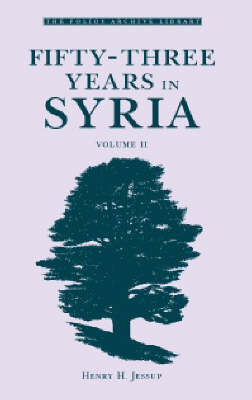Folios Archive Library
1 total work
"Let us print and teach and live before them a Christian life and we may win them to Christ. The Arabic Bible with educational and medical missions will be the efficient factors in bringing Islam to Christ." It was with this conviction that Henry Jessup left Boston in December 1855 and joined the American Presbyterian Mission in Syria. In vividly descriptive prose this volume, the second of two, details his memoirs of the country amongst the "the balmy breezes...its almond blossoms and wild flowers"- a complete contrast to "the bleak blasts of wintry Boston" which he had left behind. In attempting to bring "light into the dwellings", the Mission faced opposition and problems such as the strong Muslim suspicion of Christians, a hostile government and the corruption of the existing Christian sects. One of the author's strongest personal motivations was to educate and empower girls and women, who he saw as oppressed by Islam.
The Mission's course of action is discussed in detail; it included helping reform the sects, translating the Bible into Arabic and setting up many educational institutions, one of which was the Syrian Protestant College, later the American University of Beirut, in 1866. During his time in Syria, Jessup experienced great changes including the impact of the bloody massacres in 1860 and French occupation, but by 1908, at the end of his career, he truly believed that increased foreign interest in Syria and the political changes would enable the spread of the Gospel and mean the end of "despotic" Islam. The two volumes together give us an unusual perspective on the history of Syria. Volume two continues with Jessup discussing and reflecting on his later years in the region at the end of the 19th century. It also includes detailed appendices on the history of the American Mission in Syria.
The Mission's course of action is discussed in detail; it included helping reform the sects, translating the Bible into Arabic and setting up many educational institutions, one of which was the Syrian Protestant College, later the American University of Beirut, in 1866. During his time in Syria, Jessup experienced great changes including the impact of the bloody massacres in 1860 and French occupation, but by 1908, at the end of his career, he truly believed that increased foreign interest in Syria and the political changes would enable the spread of the Gospel and mean the end of "despotic" Islam. The two volumes together give us an unusual perspective on the history of Syria. Volume two continues with Jessup discussing and reflecting on his later years in the region at the end of the 19th century. It also includes detailed appendices on the history of the American Mission in Syria.
